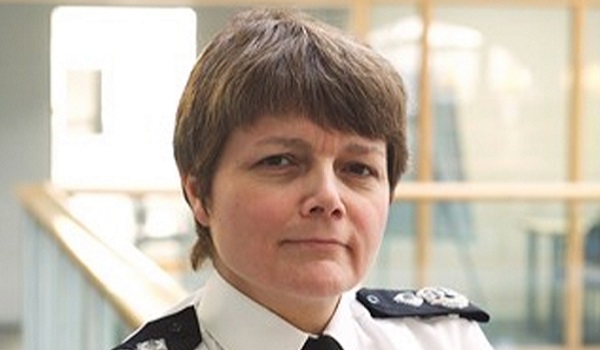Closer working commitment by CPS and police to narrow gap on rape and sexual offence prosecutions
The Crown Prosecution Service (CPS) says a wide-ranging action plan is already underway to improve the “crucial relationship” between prosecutors and the police in the wake of a critical report from HM Inspectorate of Constabulary and Fire and Rescue Services and HM Crown Prosecution Service Inspectorate.
The report found there needs to be a “fundamental change” in how the two parties work together on rape cases, with evidence of “ineffective joint working between the police and prosecutors, contributing to lengthy delays in decision-making, poor outcomes and unacceptably poor communication with victims”.
In response to the report published today (July 16) the CPS and National Police Chiefs’ Council (NPCC) have reaffirmed their commitment to “build stronger rape prosecutions, increase the number of victims getting their say in court and minimise the time taken to reach a charging decision”.
The new approach, which police forces and CPS units across England and Wales have signed up to, sets out how the CPS and investigators will work together more closely from the outset of rape and serious sexual assault (RASSO) cases through increased use of Early Advice.
Early Advice is where police can consult a prosecutor on investigative strategy from the beginning of a case and talk through the evidence needed to build and strengthen it. It helps officers build strong cases by focusing the investigation on what is relevant and avoiding unnecessary inquiries into what is not.
It builds on successful efforts in the South East to drive up its usage, which has resulted in a significant increase in rape referrals to the CPS since the initiative began in November last year.
Sue Hemming, CPS Director of Legal Services, said: “Rape is a devastating and life-changing crime and our prosecutors come to work to bring offenders to justice whenever the legal test is met.
“We welcome today’s inspection report, which found our specialist prosecutors are committed to achieving justice for victims and are making legally correct decisions in the vast majority of cases.
“However, the CPS accepts far too few victims are currently seeing their cases reach court and we are working hard to turn this around, including addressing many of this report’s recommendations.
“We agree closer collaboration and communication with police from the outset of a rape complaint is essential to driving up the number of strong prosecutions and that a blame culture serves no one. Today’s agreement builds on our continued efforts to achieve better justice for victims.”
NPCC lead for rape, T/Chief Constable Sarah Crew, said: “We are committed to improving the police response to rape and get victims the justice they deserve. Together with the CPS we are implementing a joint action plan which aims to increase the number of cases being taken to court and the number of offenders being sent to prison.
“Our plan is wide ranging and we are making good progress, but we all know there is much more to do. The new agreement between police and the CPS to work much closer in the very early days of an investigation will mean stronger cases from the get-go and should lead to a faster charging decision. This will, we hope, reduce the chance of a victim withdrawing their support.
“Changing the system and getting justice for more victims won’t happen overnight but it is something every police officer is committed to, and I am confident we are moving quickly in the right direction and already making vital improvements.”
The Memorandum of Understanding (MoU) explains how increased use of Early Advice helps to build stronger cases, improve file quality and enhance understanding of what each party needs from an investigatory and legal perspective.
The CPS says Early Advice is particularly helpful in rape investigations, where discussions may include whether mobile phone downloads or social services records are required from a complainant and what the parameters should be, ensuring that only reasonable lines of enquiry are pursued. This means prosecutors and investigators can ensure that digital evidence is only considered if it is necessary and proportionate.
This helps to reduce the time taken to reach a charging decision and increase the number of cases that are prosecuted, as lines of enquiry and evidential requirements are considered from the outset.
The MoU also sets out how the police will introduce a robust quality assurance and supervision process to ensure all case material meets the CPS standard before being referred onwards. A prosecutor will then consider this material and advise on the most effective lines of enquiry within the agreed timescales.
Ms Hemming added: “Every case is different, which is why our prosecutors work closely with the police from the outset, offering early advice to build strong cases. This work is already beginning to make a difference, with more cases being referred to us and a higher proportion being charged. Through this MoU, we are driving this vital work even further, to make sure we see real and lasting change.”
Earlier this year the CPS and NPCC published the Joint National Action Plan which sets out a wide-ranging plan for greater collaboration to improve the response to RASSO cases, including the Early Advice MoU. It is designed to ensure victims have confidence in the criminal justice system and receive the best possible support and care whilst investigations and prosecutions take place.
The CPS is one year in to a five-year strategy to bring about a step-change in how it works with all parts of the criminal justice system to reverse the sharp drop in prosecutions.
Last month, the CPS published a report which sets out measures that are being tested across the country to improve joint working with police and close the gap between reported rapes and cases reaching court.


